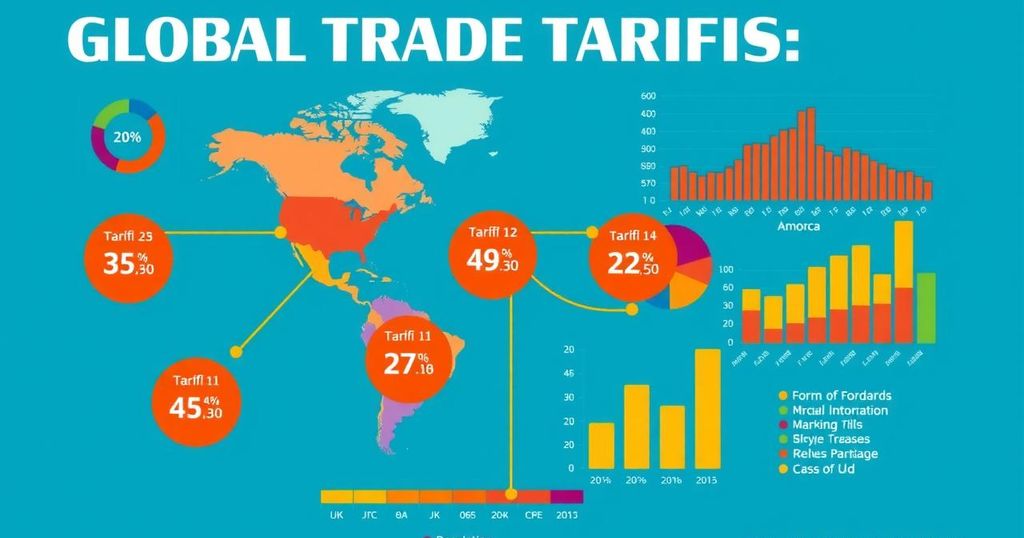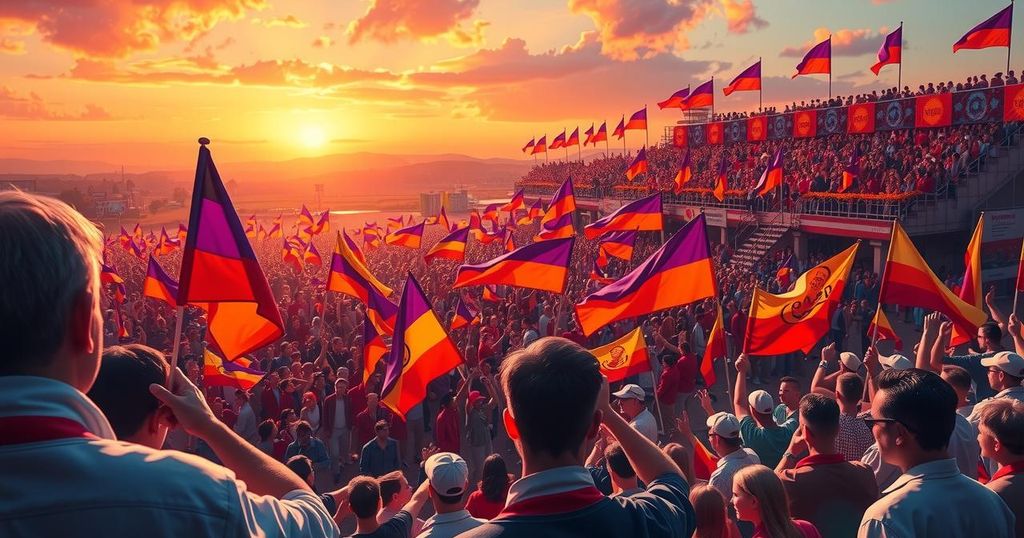Indonesia experiences waves of student protests following President Prabowo Subianto’s inauguration, reflecting a politically charged climate. Key issues arise from implementing ambitious social policies and increased military influence in governance. The country positions itself as a vibrant democracy on the international stage, focusing on humanitarian support while facing challenges related to historical events.
In recent months, Indonesia has witnessed significant student protests against President Prabowo Subianto, just 150 days after his inauguration. These protests reflect the dynamic political climate in the country, which is characterized as a rising power with a youthful electorate. Prabowo, who previously ran for presidency multiple times, capitalized on social media to connect with younger voters, yet faces challenges amid signs of discontent regarding his governance.
Despite his popularity reaching up to 80%, cracks are appearing in Prabowo’s administration. His ambitious policies related to health and education are struggling with implementation issues, and his recent inclination toward increased corporate and military influence in government is stirring unrest among the populace. This has led to a reassessment of his government’s initial grace period.
As an archipelago of over 17,500 islands and rich cultural diversity, Indonesia’s national motto, “Unity in Diversity,” encapsulates its societal framework. Mr. Allesandro Bernama from the Indonesian Embassy highlights the country’s democratic growth, citing increased female political representation and active voter participation. He views Indonesia as a vibrant democracy with substantial potential on the international stage.
Indonesia’s foreign policy echoes its historical stance of neutrality, established during the Cold War. As a foundational member of the Non-Aligned Movement, Indonesia pursues a pragmatic approach to global challenges, being active in various international organizations. Bernama emphasizes Indonesia’s commitment to aiding humanitarian efforts, particularly regarding the Palestinian cause, linking these efforts to enduring principles of international law.
The question of ratifying the Genocide Convention remains sensitive in light of historical events such as the 1965 anti-Communist massacres. Bernama expressed a complex stance, noting Indonesia’s commitment to human rights conventions while also acknowledging existing national traumas. The establishment of a new Ministry of Human Rights underlines governmental intent toward reconciliation.
Regarding the recent “Dark Indonesia” protests, Bernama maintains a positive outlook, portraying the demonstrations as indicative of a healthy democratic engagement among youth. He believes that ongoing protests reflect citizens’ desire for accountability, although persistent public discontent signals deeper issues within the administration.
On the international front, the UK is seen as a significant ally for Indonesia, with recent agreements underscoring a shared strategic vision. Upcoming cultural events hosted by Indonesia, including the Pavilion at National Geographic Traveller Food Festival and CelebrASIA 2025, aim to enrich cross-cultural ties and showcase Indonesian heritage and cuisine.
Regular activities, such as the Anglo-Indonesian Society meetings, Angklung and Gamelan music classes, and language lessons at the Embassy, reflect a sustained effort to promote cultural exchange and understanding between Indonesia and the United Kingdom.
In conclusion, Indonesia stands at a crossroad marked by dynamic political shifts, student activism, and efforts to strengthen international partnerships. President Prabowo’s administration faces both significant challenges and opportunities as the country navigates its place in the global arena with the youth’s voices becoming increasingly prominent. Indonesia’s commitment to its foundational principles of unity and democracy remains pivotal in shaping its future trajectory.
In summary, Indonesia is currently undergoing a period of notable student activism and political challenges under President Prabowo Subianto’s administration. The country remains committed to its principles of unity and democracy, striving to address historical traumas while strengthening international ties, particularly with the UK. As the youth increasingly engage in political discourse and activism, Indonesia’s future will depend on how effectively the government responds to their demands and navigates its diverse societal landscape.
Original Source: roarnews.co.uk




